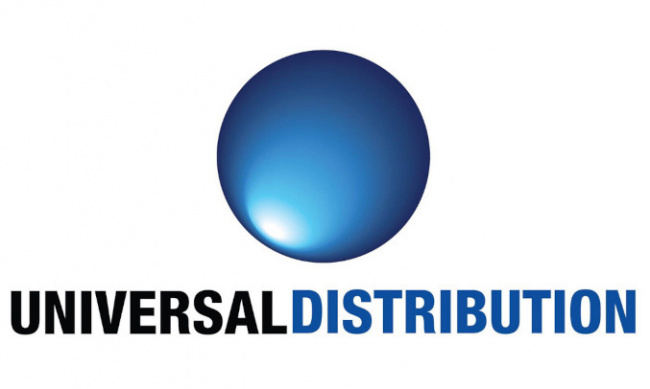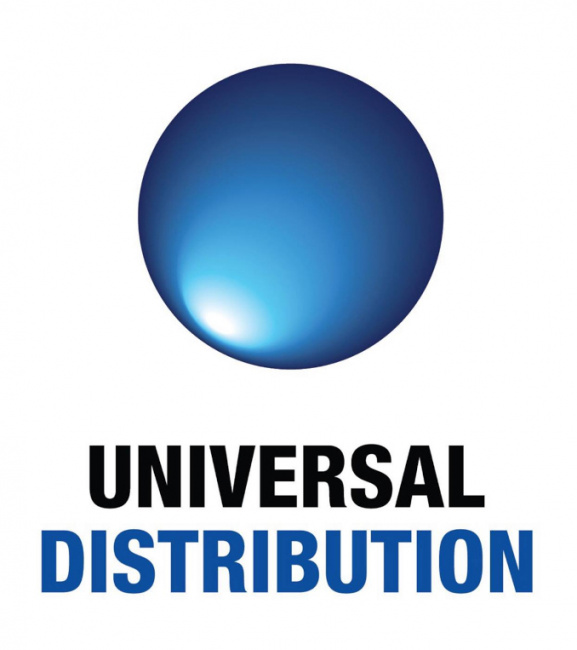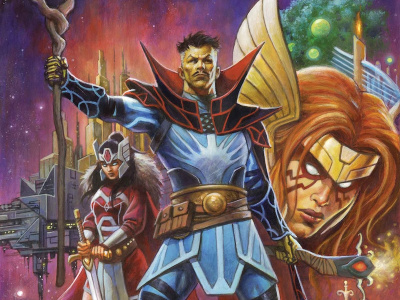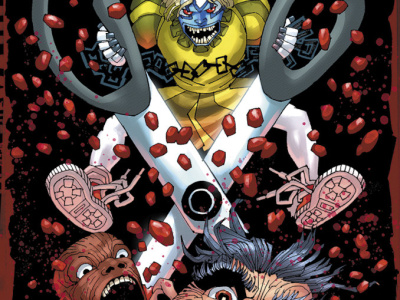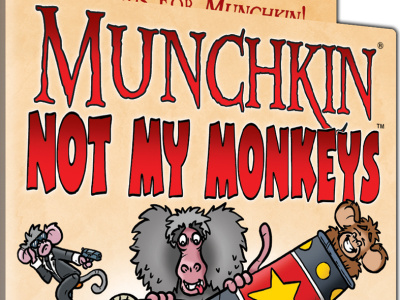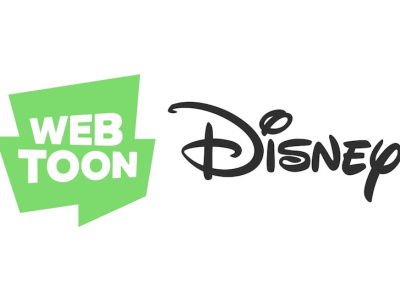ICv2: For our readers that might not be familiar with Universal Distribution, can you describe your company and the kind of business you do, the parts of the business you're in?
Angelo Exarhakos: Sure. We started the company Universal Distribution back in 1989 when we were very young, I was 21 years old, with the idea of trying to find our passion, and primarily to become a comic distributor. We started with comic books.
We eventually started adding different lines like sports cards, like gaming cards, Magic: The Gathering, Pokemon, and board games. The idea was to have a real one‑stop source for your typical comic book/gaming shop to be able to provide them with products, and services, and ways to create a better experience for their customers.
We recently had the news that you've added DC as a direct supplier, which expands your business on the comics side (see "DC Opens New Direct Distributor"). Talk a little bit about the comics business in Canada, how it might be different from the way it is in the United States, and what your thoughts are on your expansion into this new way of doing business.
In Canada, because of our lower population base in a large landmass, most of our shops are what we call hybrid shops. They essentially carry a combination of comic books, gaming cards, board games, sports cards, collectibles.
We don't have a lot of areas other than the real metropolitan areas of Montreal, Toronto, maybe Vancouver to some degree, that have the population density to support purely a comic book shop, purely a sports card shop. Most places have to have a variety of revenue streams for those customers.
We like that, because you see that a customer can have multiple interests. We see a lot of crossover. People who read comics generally like to play games. A lot of them like to play Dungeons & Dragons when they read comic books.
There's a lot of interrelationships to those categories, and that's been something that we've tried to focus on as a company. It provides value for our key partners to be able to introduce their products to new readers.
It also provides us the ability to help customers in shops that maybe don't have the comfort level in a certain category to create a new revenue stream for them, and to create a more complete experience for a typical collector or a gamer coming into their store.
What's the overall condition of the market for comics and games in Canada?
It's very good, obviously with the craziness of the last three years, the ups and downs of COVID, and not just in terms of business. Generally, we always thought that our business was very resilient to downturns in the economy and recessions. Recession‑proof or recession‑resistant is what we always used to hear about the collectibles business. We didn't know what that was going to be like through a pandemic. We never knew what that was going to look like.
Emotionally, it was quite the rollercoaster ride for a lot of shop owners. I know that I had conversations at the beginning of the pandemic, when we had the first lockdowns, with retailers who had invested tremendous amounts of money opening up a new location. I had guys literally crying on the phone, literally in tears, sobbing like babies about what happened to their business. Those same people, two weeks later, call back in this joy, saying, "I can't believe how much business I'm doing. All my customers are calling me, either on the phone or reaching out to me through the social media network that I communicate with them, and they want products."
|This is critical, because it revealed a couple of things to me, and importantly, it's not just that our category is resistant to economic downturns. What it is that what we all love about this business is the escape it gives us from the crazy real world.
We all love to be able to go home after a hard day at the office, after being bombarded with different stresses in our lives and opening up a comic book. All of a sudden you're in that moment, you're in there, and you're in a different world, and you're away from this, your normal, crazy life.
That's what we all love at the end of the day. The pandemic showed that more than anything, that we are in a category of escapism, and it's wonderful. It's what we do. It's why I love what we do.
The second thing I believe that it revealed, and the other part of why I love what I do for a living is the connection that we as an industry have all the way from the top, all the way from the publisher, all the way down to the end‑consumer.
It's such a special, tight‑knit relationship, but especially the one between shop owner and customer. That is a fantastic relationship that is extremely strong, and it was shown through the pandemic. The way that our category was able to convert that in‑store purchase and experience through those shutdowns into one that was working through social media platforms was unique.
We didn't see that in a lot of other places. It was very unique, because what we are involved with is a lifestyle. Even when times are great (there's no pandemic, there's no economic downturn), that person (and I was and still am one of them) likes to constantly be engaged in their hobby.
I am constantly looking at my phone and my feed about the new games, the new comics, all the new shows coming out, all of those things. It's what we love. It's what we love to do.
Fans were always connected to that shop owner about the new comic book releases, the new event that's happening, the new Magic Prerelease that's coming. That was always already there. As a shop owner, you needed to make sure that you were always in touch with your customers, making sure that they knew what was coming.
When the pandemic hit and the lockdown happened, they had a way to communicate with those customers; they were already connected; they converted all of that demand. Because people were at home needing escapism more than ever, they were able to convert that into sales.
That was one of the biggest issues that I saw when Diamond decided to stop shipping product. As a category, we were very conflicted at that point. You shut down, you obviously have to protect your staff, and the world is going to hell in a handbasket. At the same time, people are relying on us for those products.
They need that escapism. They want to be able to sit and read something and not think about the crazy things that have just happened in the world that they had enough of it. They want to escape. They don't want to turn on the TV. They don't want turn on the radio. They just want to sit and read a comic book.
Comics and games are an essential business, you're saying. [laughs]
One hundred percent, truly! That's how we felt. We felt that we needed to be there for our customers at this time. We really needed to be there. I don't want to sound like I'm exaggerating, but I think that our business emotionally got people through this. Our category was able to get people to think of something else for a while. There was a lot of value in that.
In our coverage of your new deal with DC, we reported that when we asked a question on whether you were thinking about expanding your sales beyond Canada, and you said yes. Can you talk about that a little bit and what your plans are?
The primary driving force for what we are trying to accomplish in our partnership with DC is to expand readership of DC Comics. To me, the border doesn't matter. That doesn't mean anything when it comes to that.
We need to make sure that we are able to provide comic books to any retailer who wants to sell them and present them to their fan base. Again, Lunar sells products into Canada, so does Diamond, and we have no issue with that whatsoever. I don't think that it matters at the end of the day.
If a customer down the block over here where I'm sitting right now believes they are better served by Lunar that is across the continent, that's their right, and they should have that right. If they believe that they're better served by somebody who's down the street from them, they should have that right as well.
I believe that there's plenty of business out there. I don't think that we need to worry about taking each other's market share. The focus needs to be on creating new business. That's where we add value. If we ever, as distributors, forget that, we don't need to be there. They can sell direct. They don't need us.
We need to be able to add value to that equation, and the value that we add is helping our retailers create a fantastic experience in their stores so that they can create new customers. That's the key.
How would you ship to a customer in the U.S.? Do you have a shipping location in the U.S.?
We do, and obviously, we have some plans that are upcoming. You might be able to tell we have quite the passion for the business, so we don't intend to keep anything, any hurdles from letting us engage with the fan base wherever they might be.
Do you currently sell games in the US, or do you plan to sell games in the US?
We don't currently. We are very, very careful, because we do have contractual limitations. Every company is a little bit different. Currently, we do not sell most of our [game] products to the U.S. If we are selling comic books to retailers in the U.S., that is a conversation that we need to have with our suppliers to see which ones believe that it would add value to their business.
Like I said earlier, ultimately, our job is to execute the vision of our key partners. If there is a partner that simply believes that they want to keep the border separate, we absolutely will respect that, because they have their own plan and their own strategy. We have to be a part of that.
I think, though, that the comic book business is a little bit of a unique situation because the distribution has been static for such a long time. We're in the process of it evolving. It's probably unfair to compare it to distribution with board games or CCGs.
They've evolved very, very differently over the last 25 years than the comic book distribution business has. The comic distribution stayed static for 25 years, and all of a sudden, now it's all over the place.
Ultimately, when I think of distribution, and when I talk to my team here, the primary driving force for us and our mission is, how do we add value for both our suppliers, our key partners and execute that vision, and how do we add value for our retailers? If we don't, there's no reason for us to exist.
Quite frankly, if we're just a logistical convenience, we shouldn't exist. They can do it themselves. Anybody can have a UPS account.



